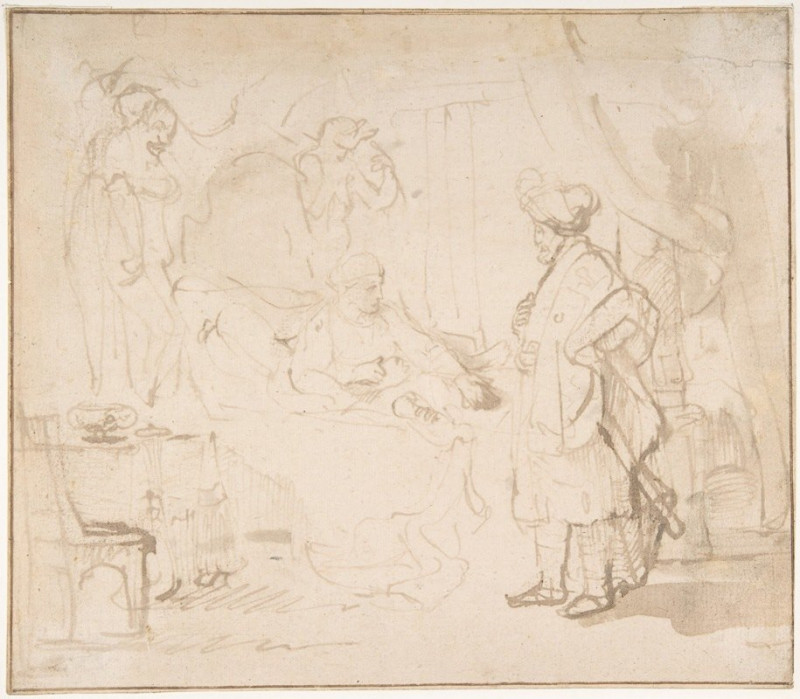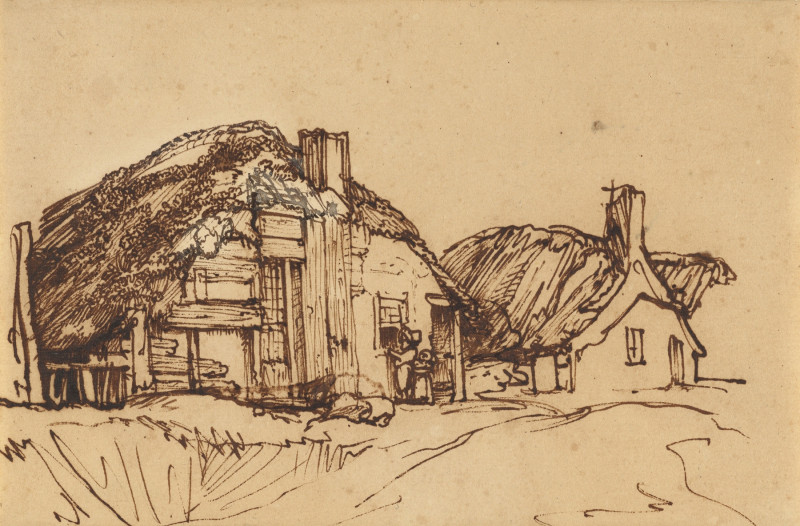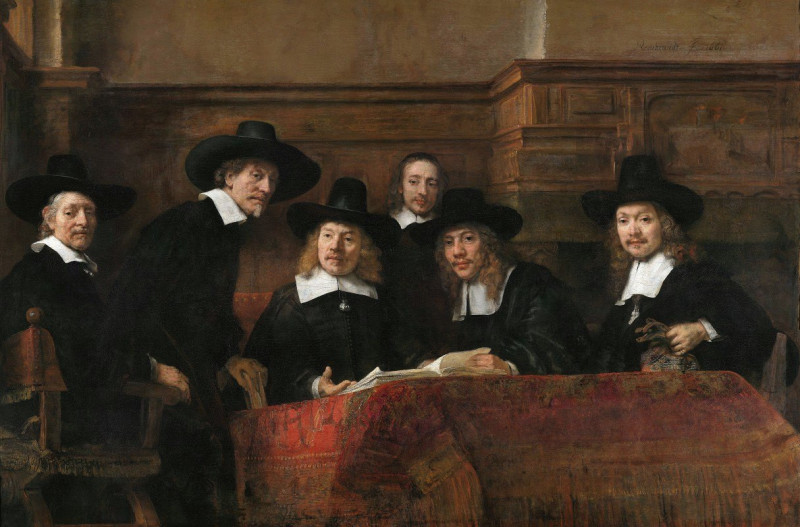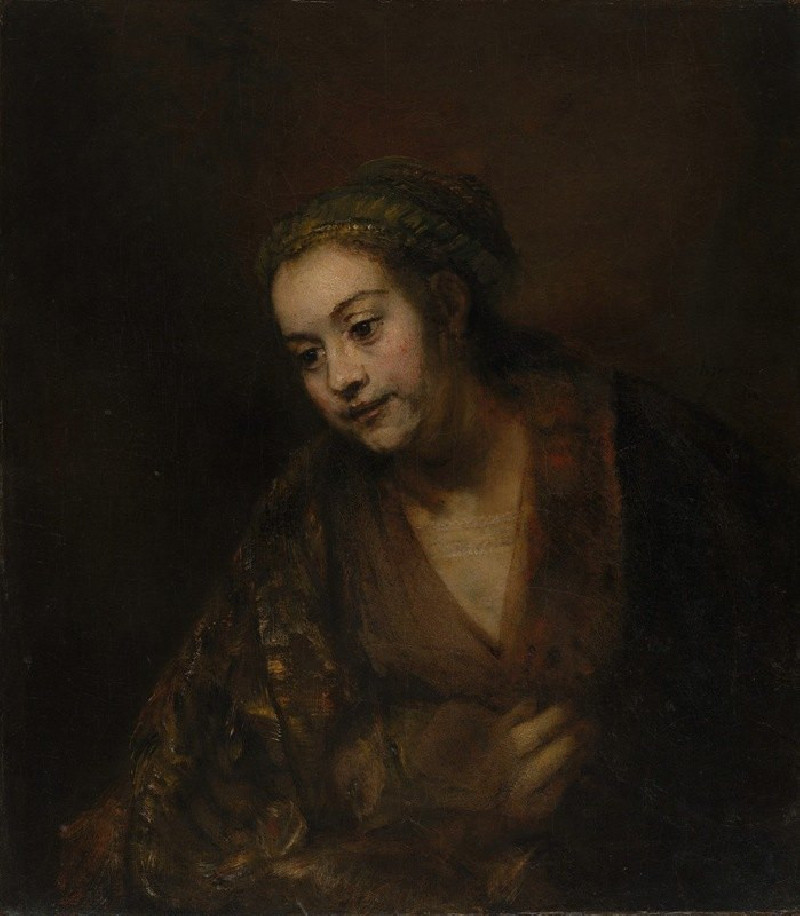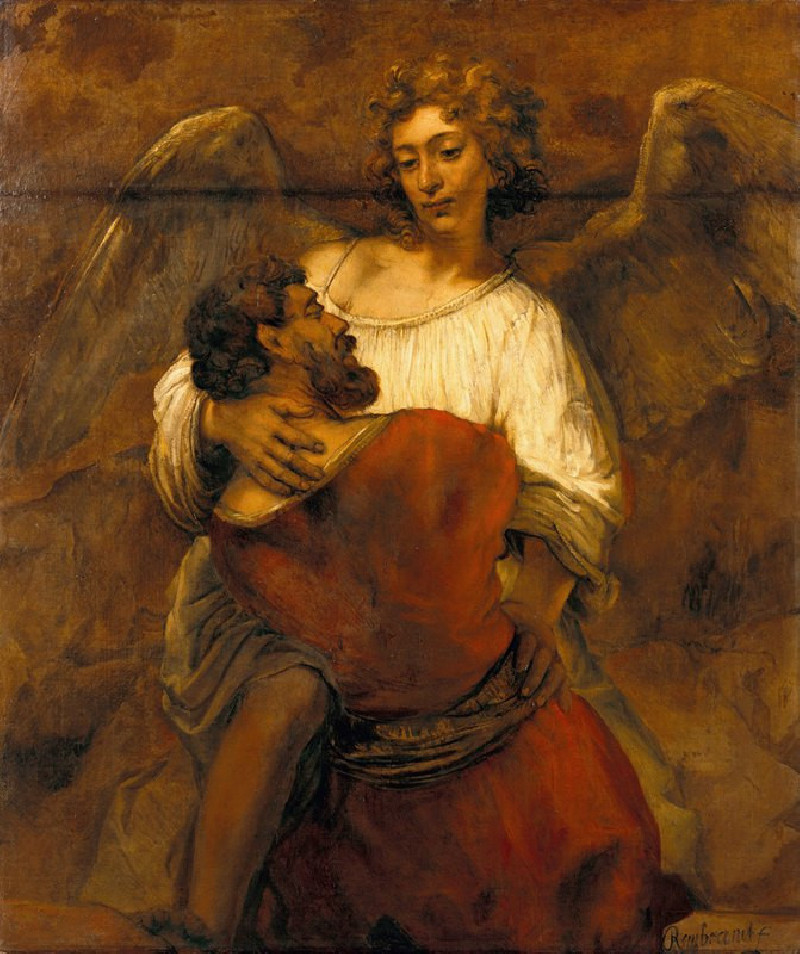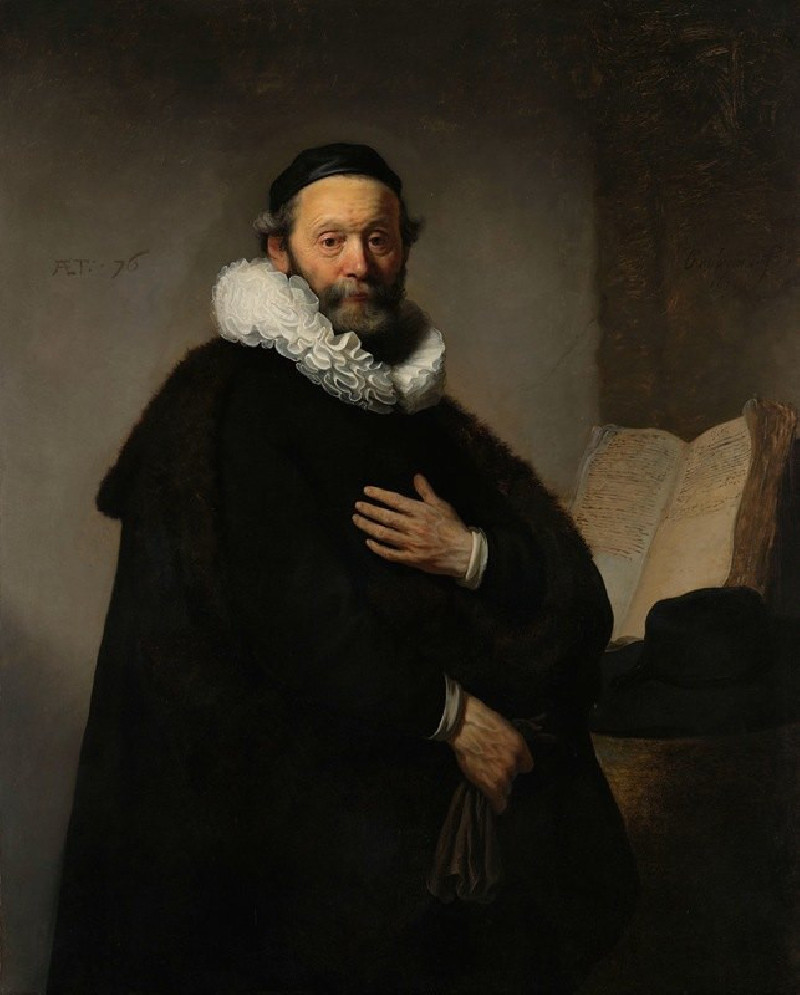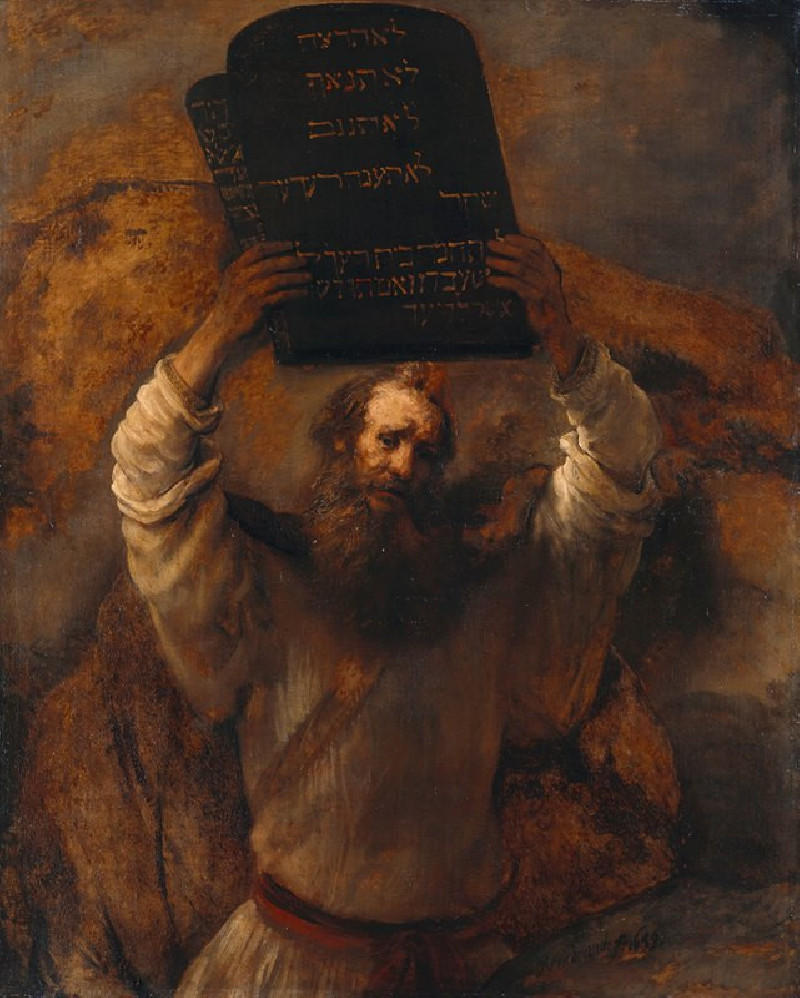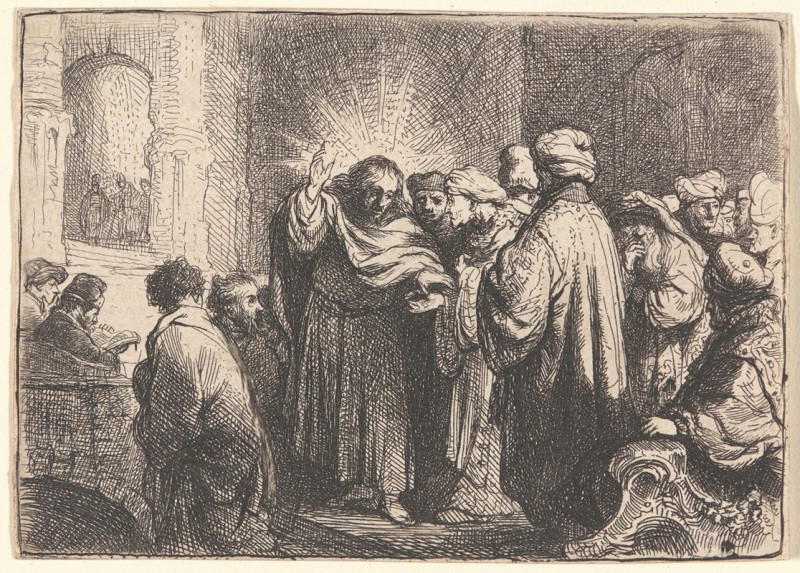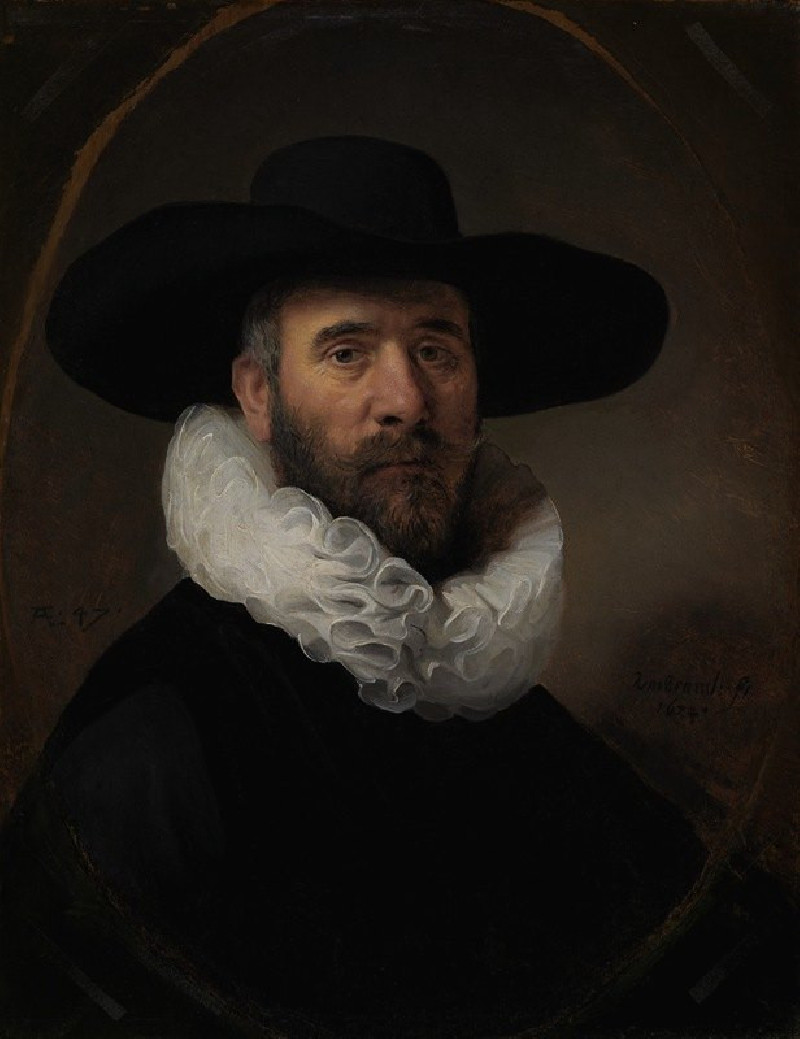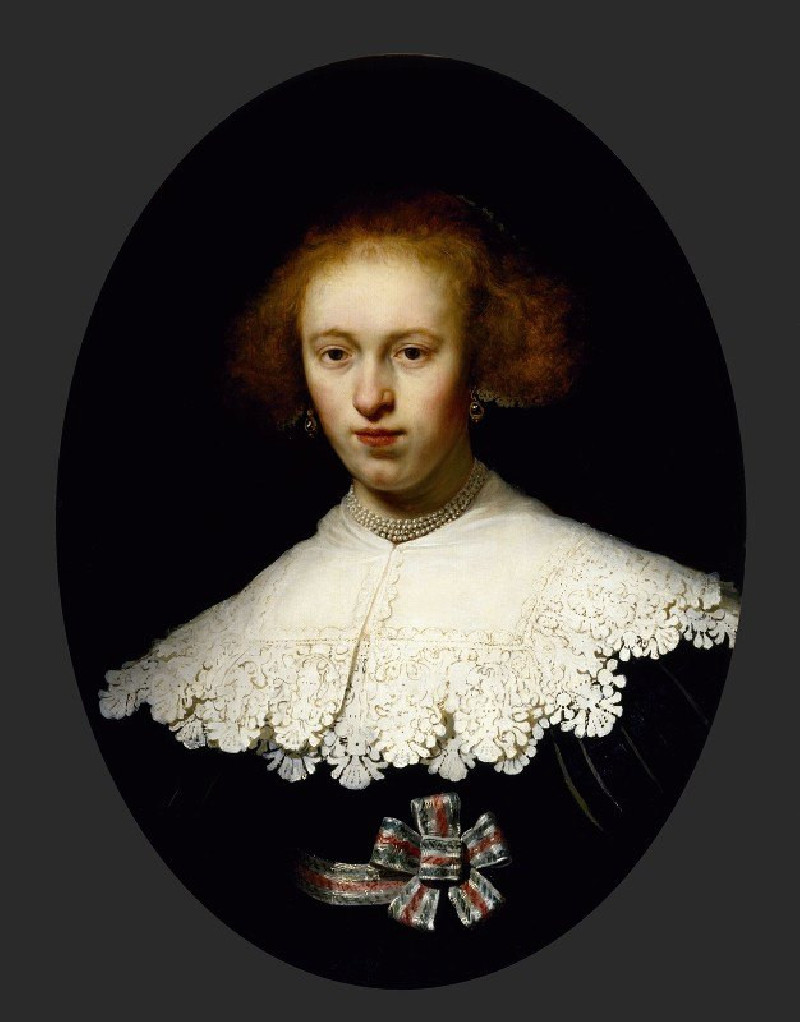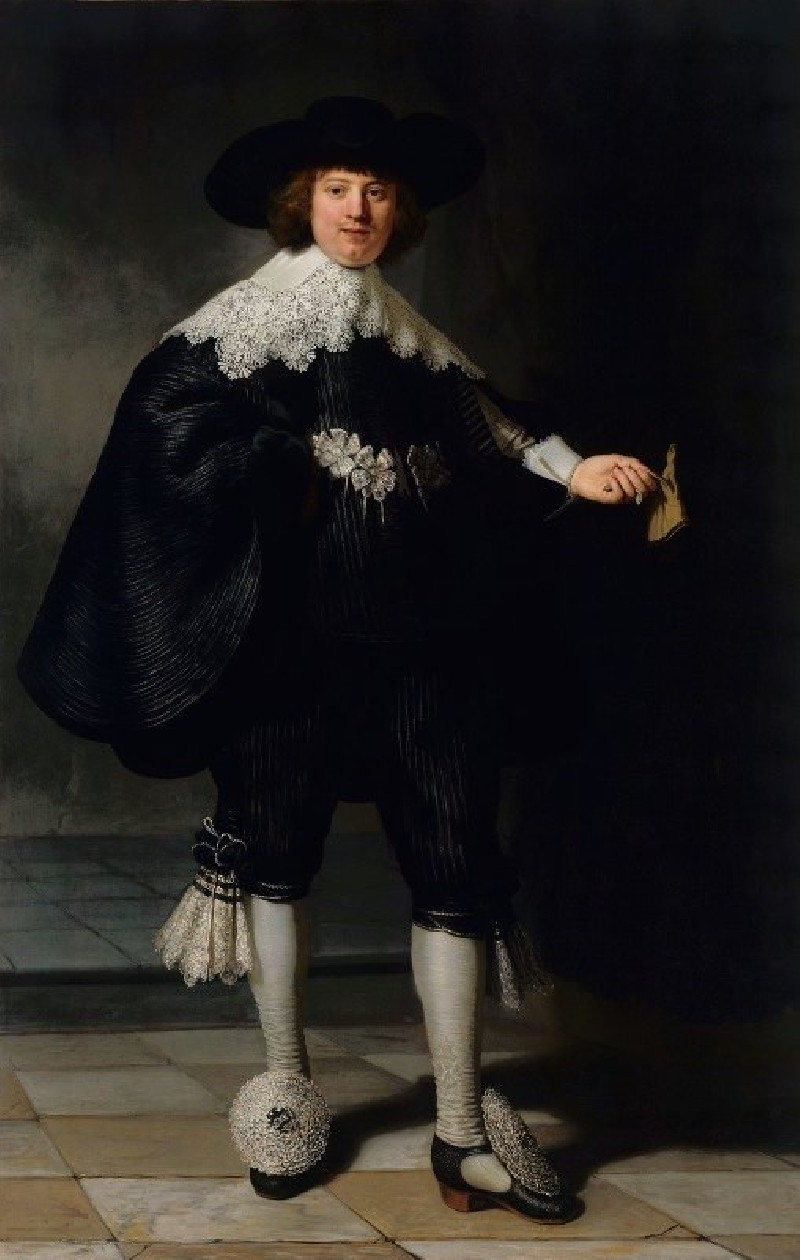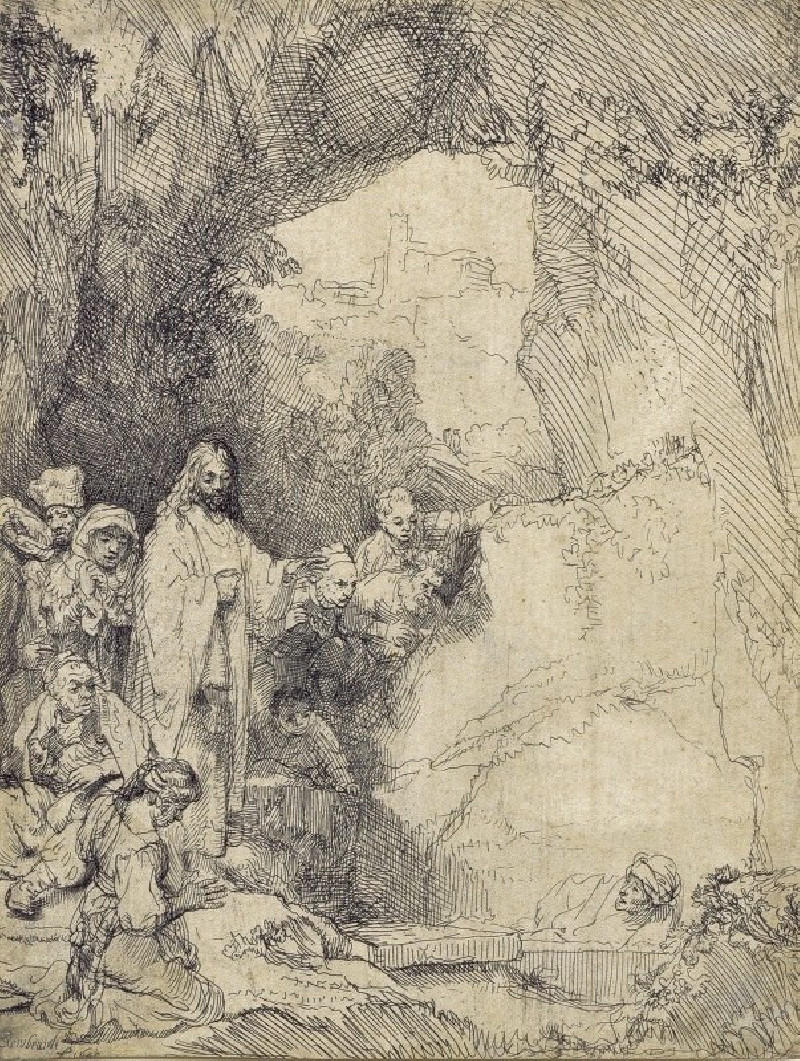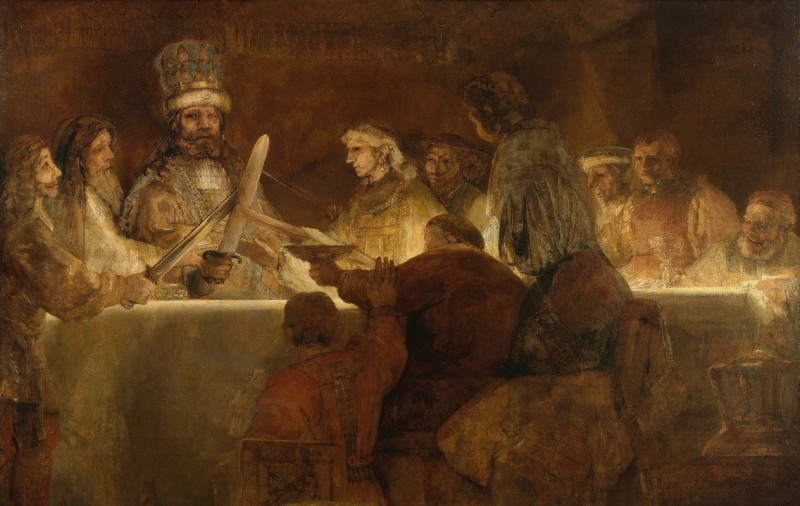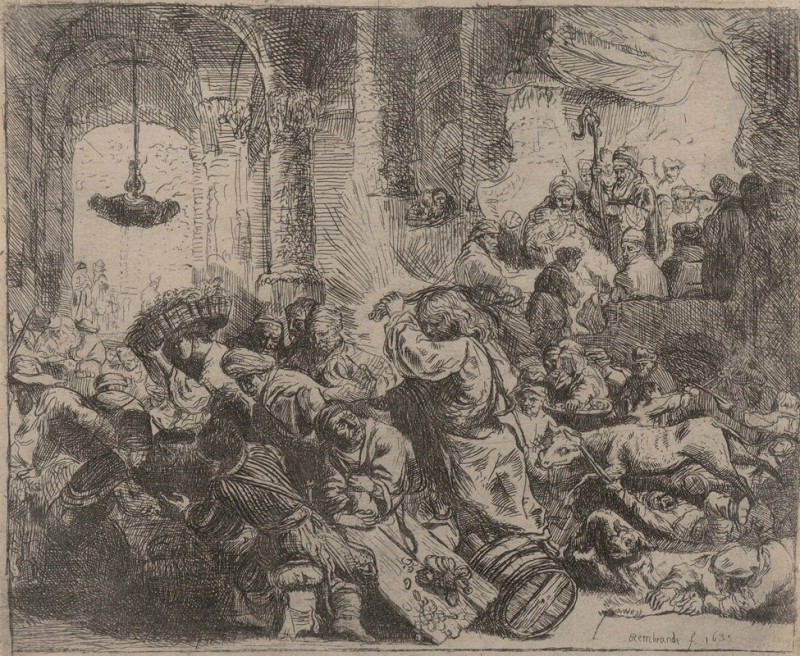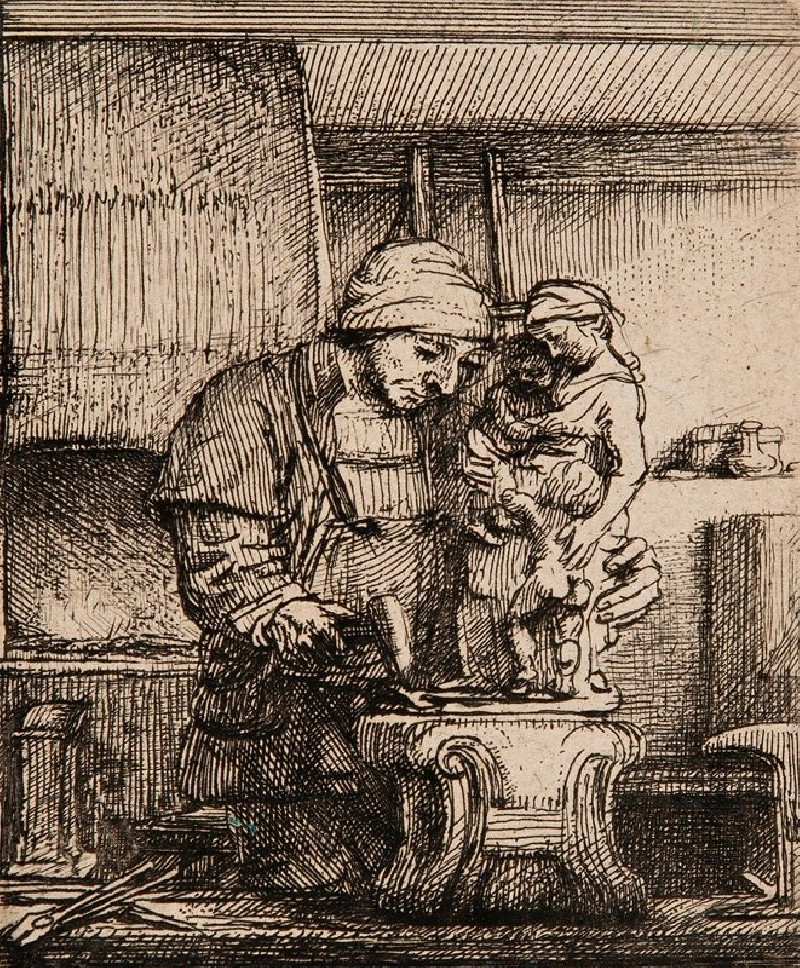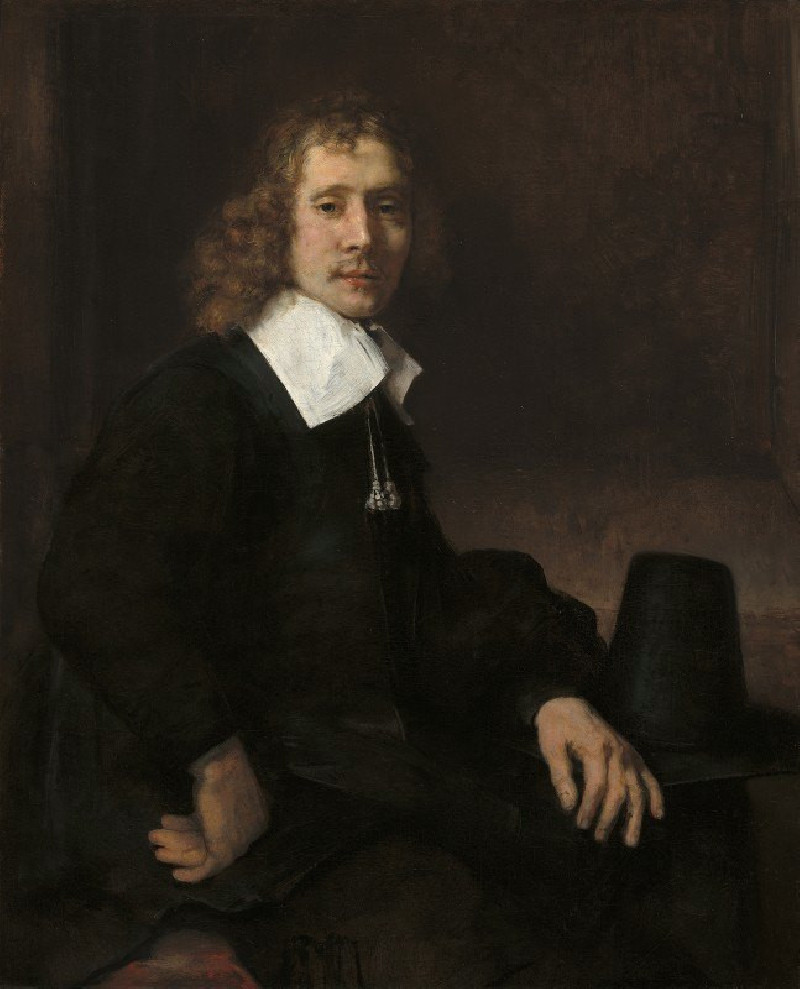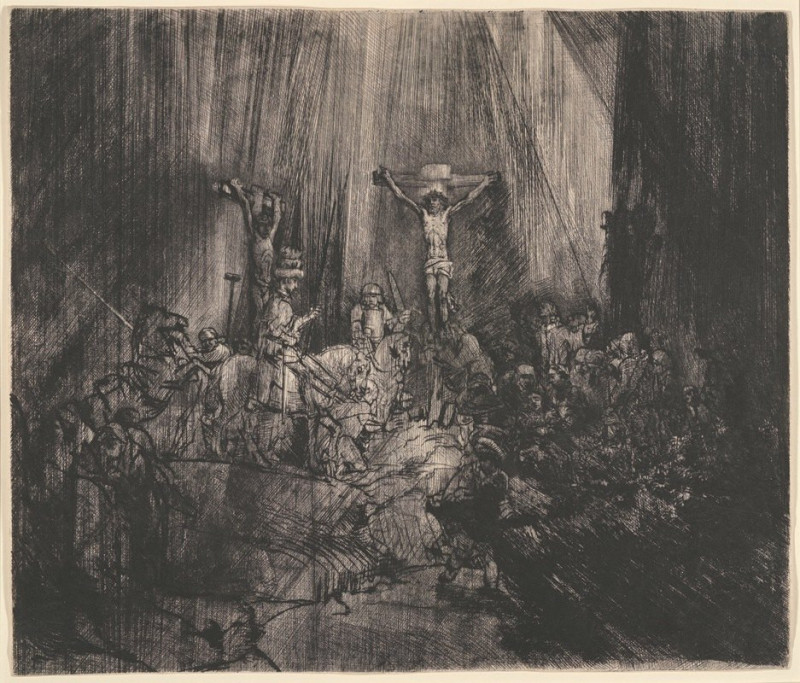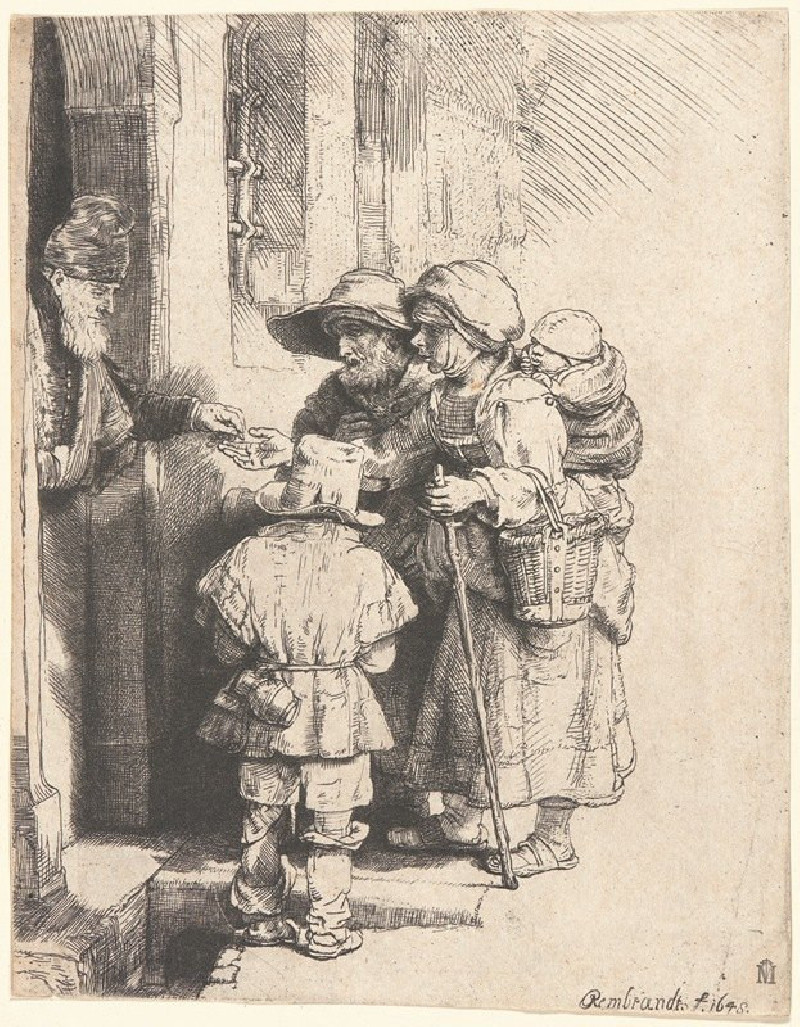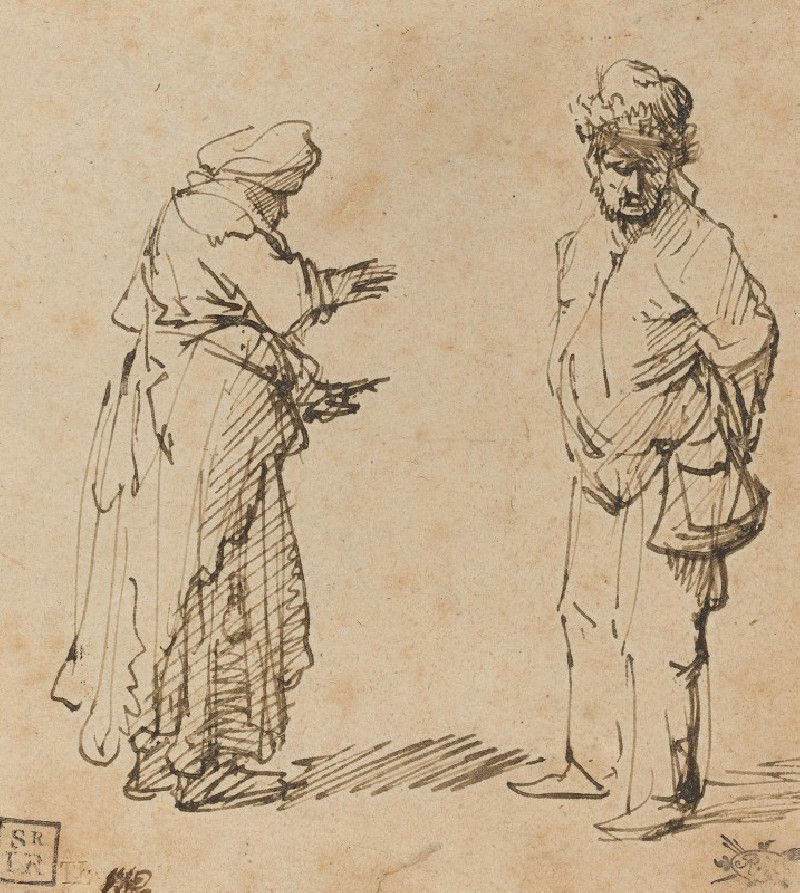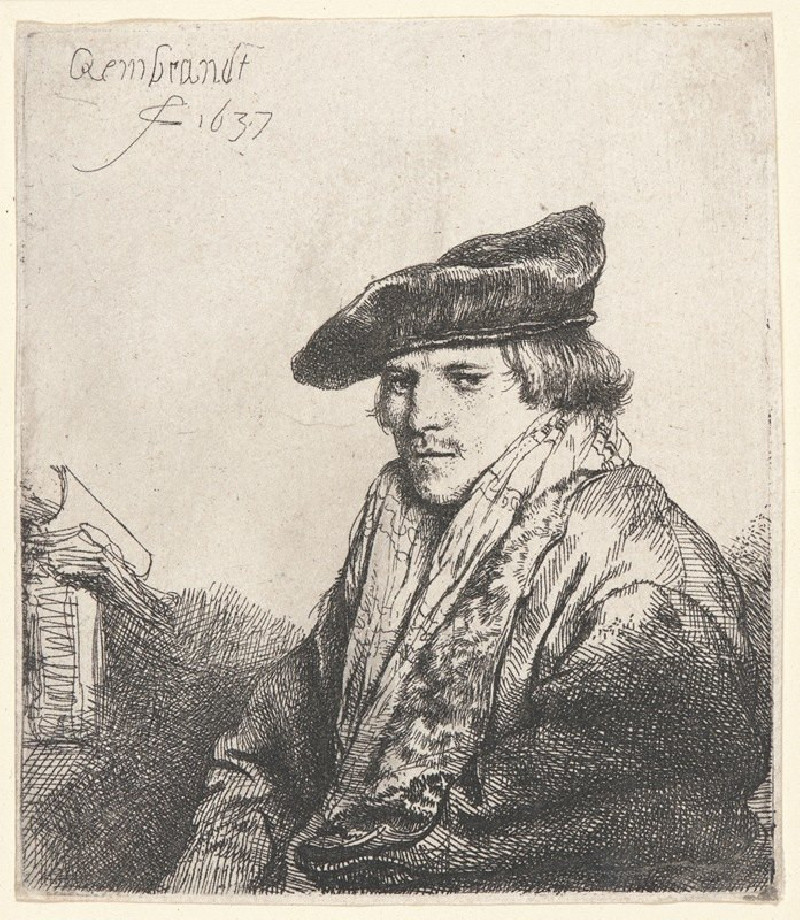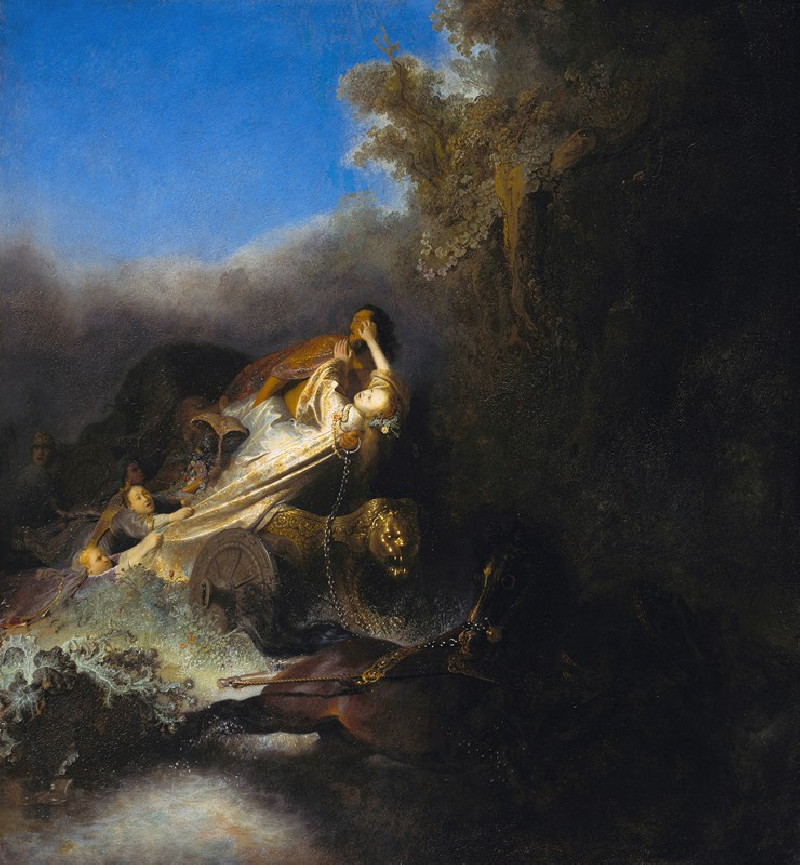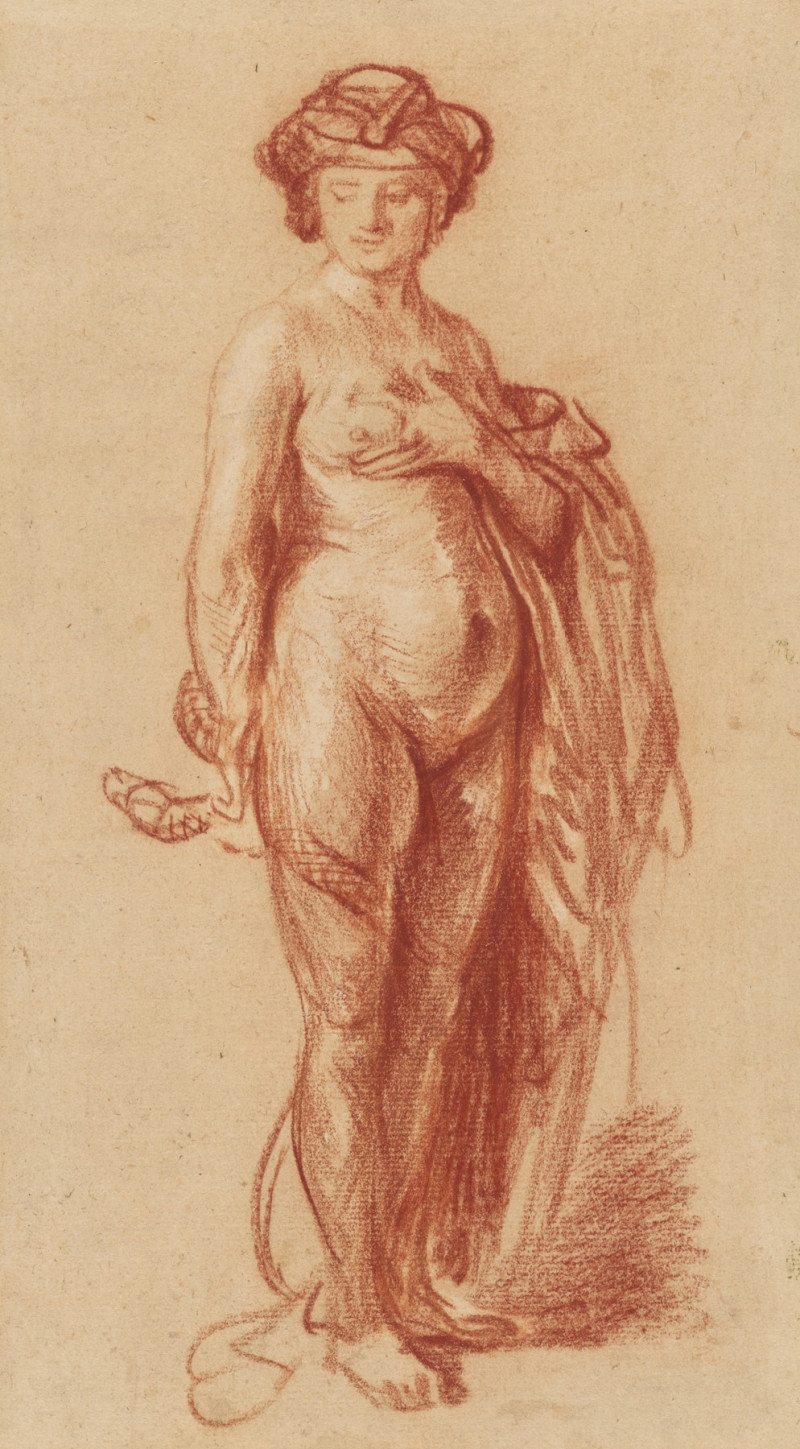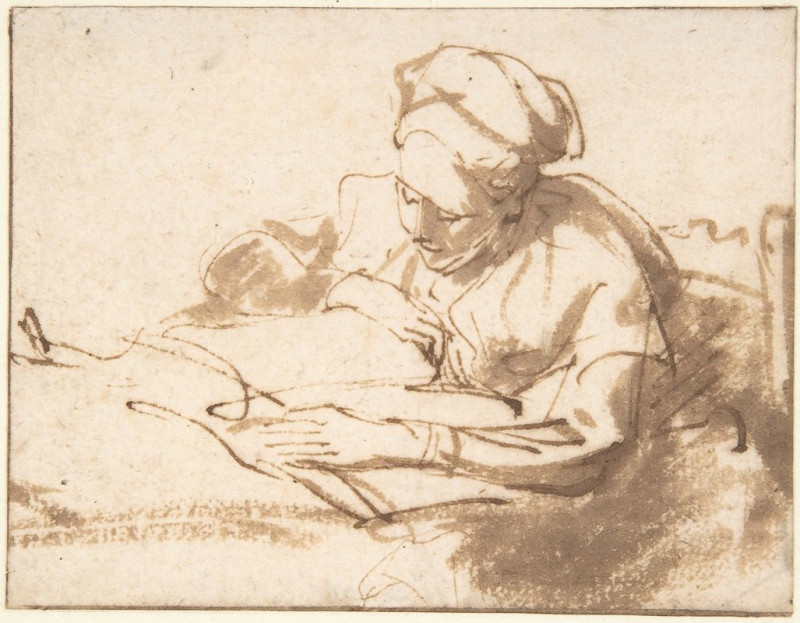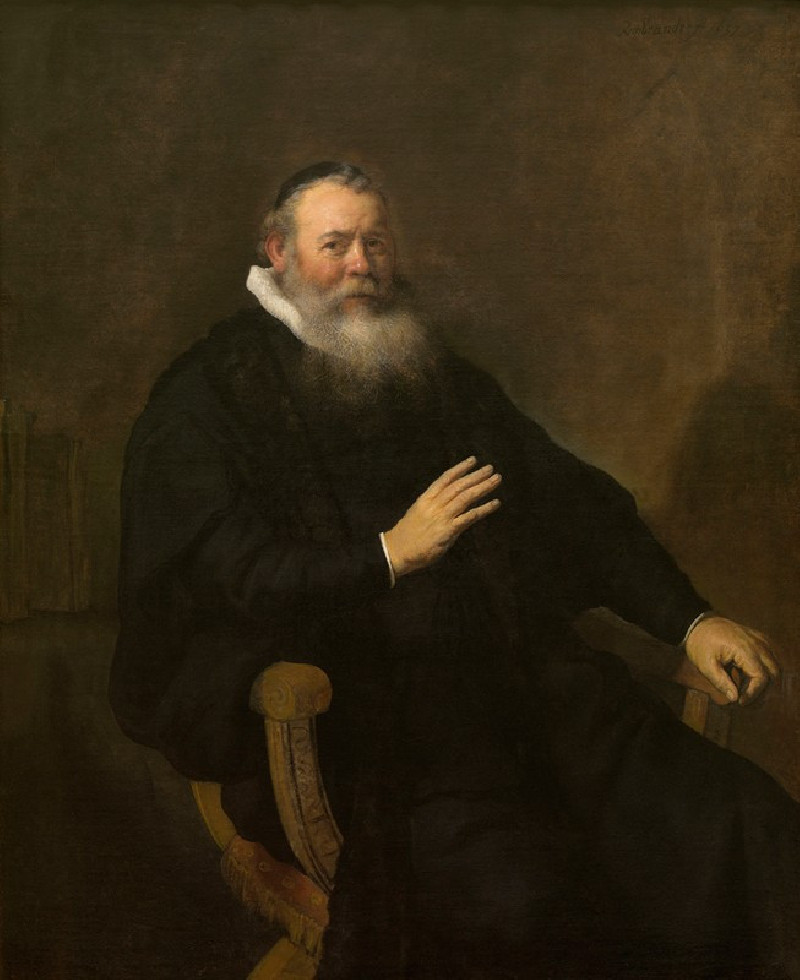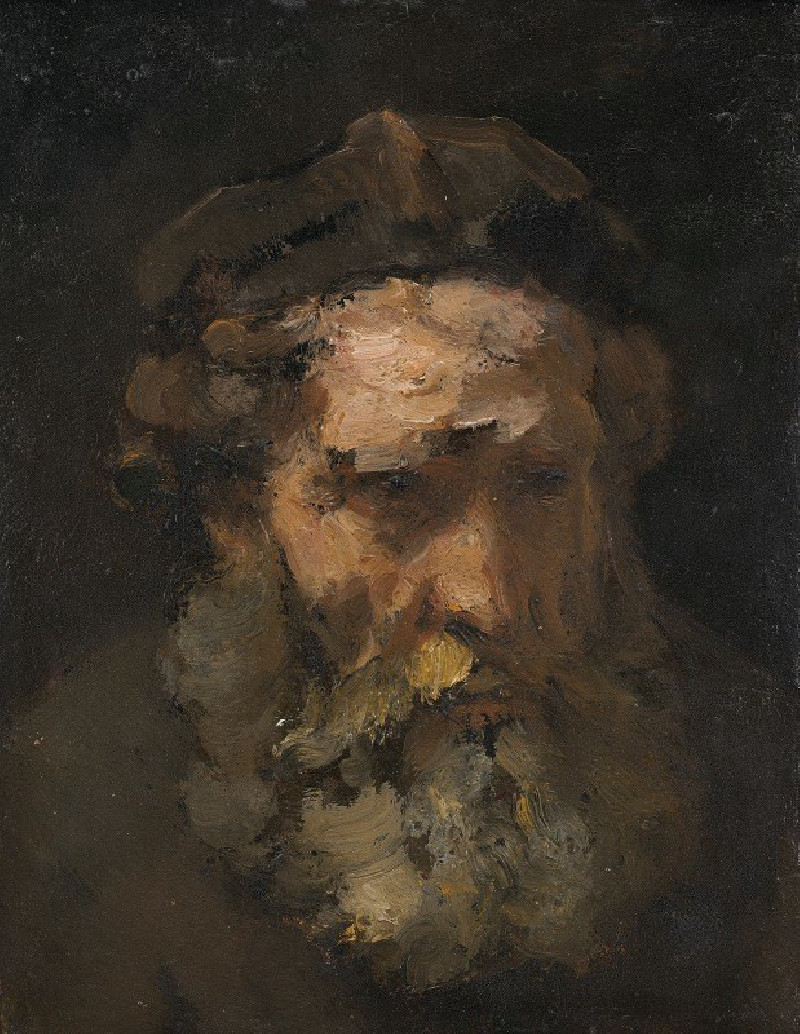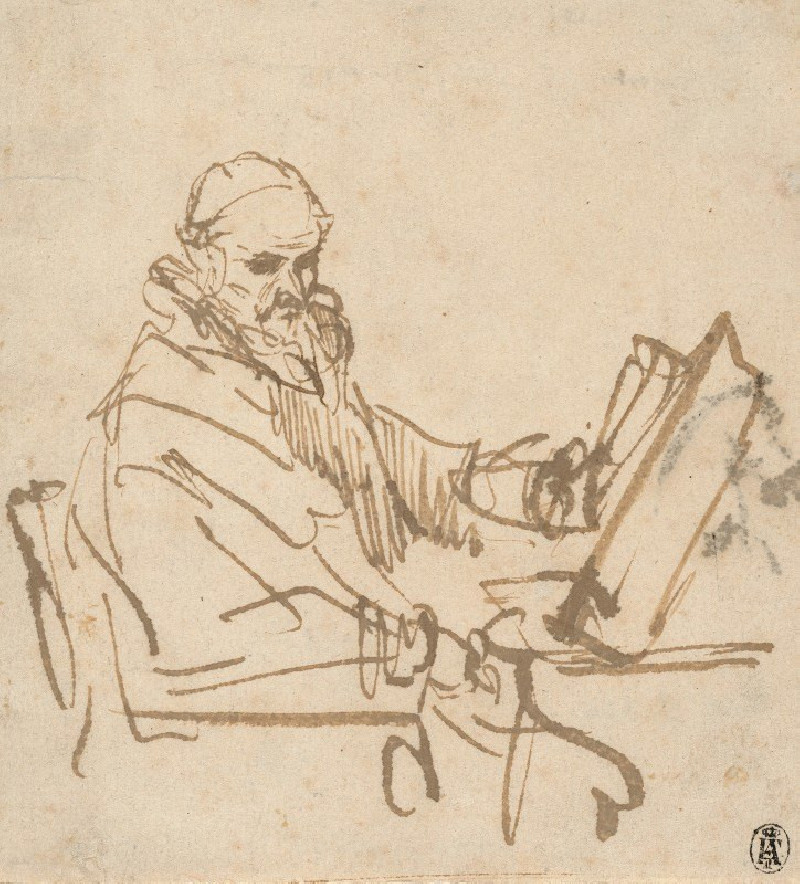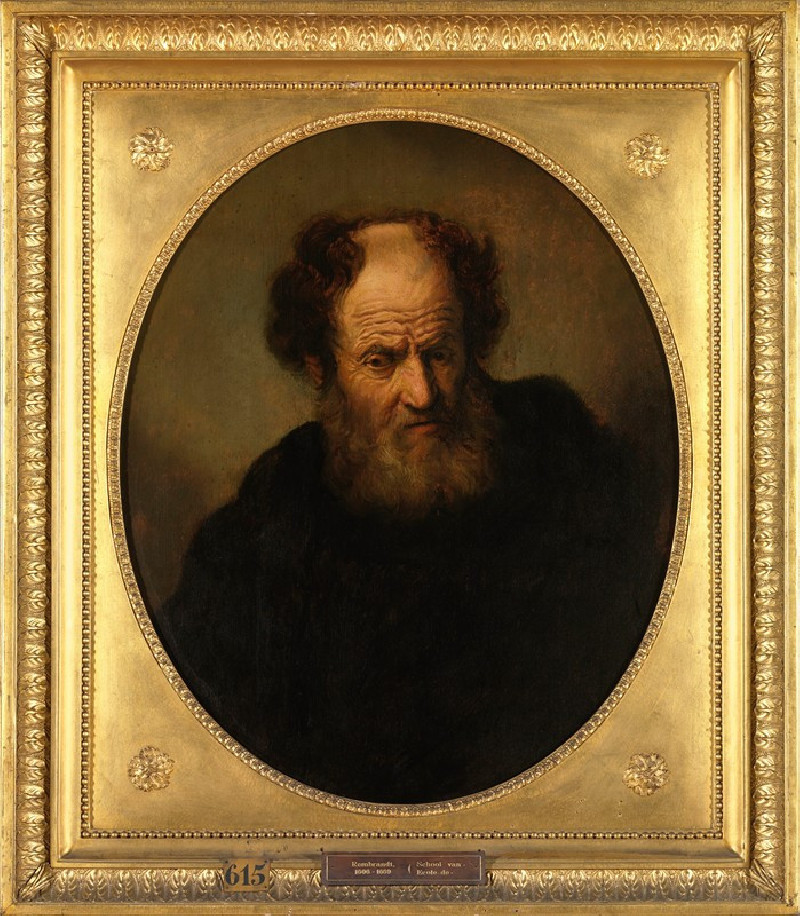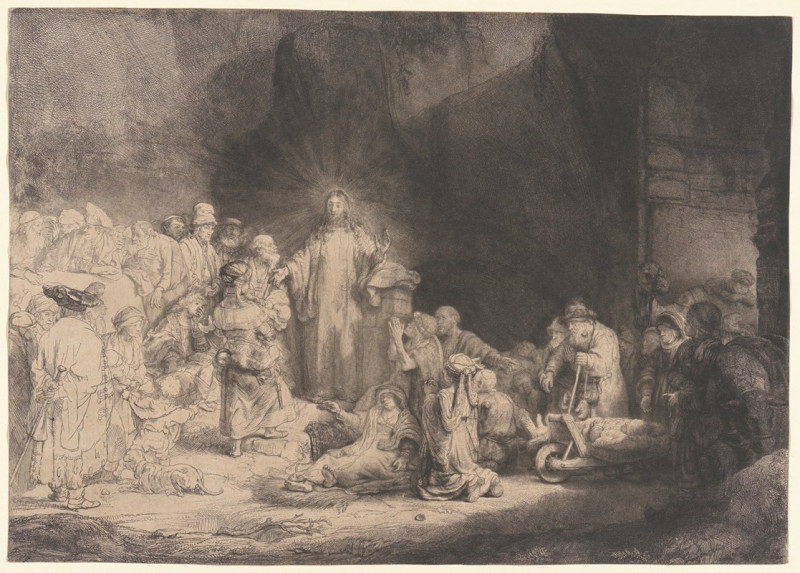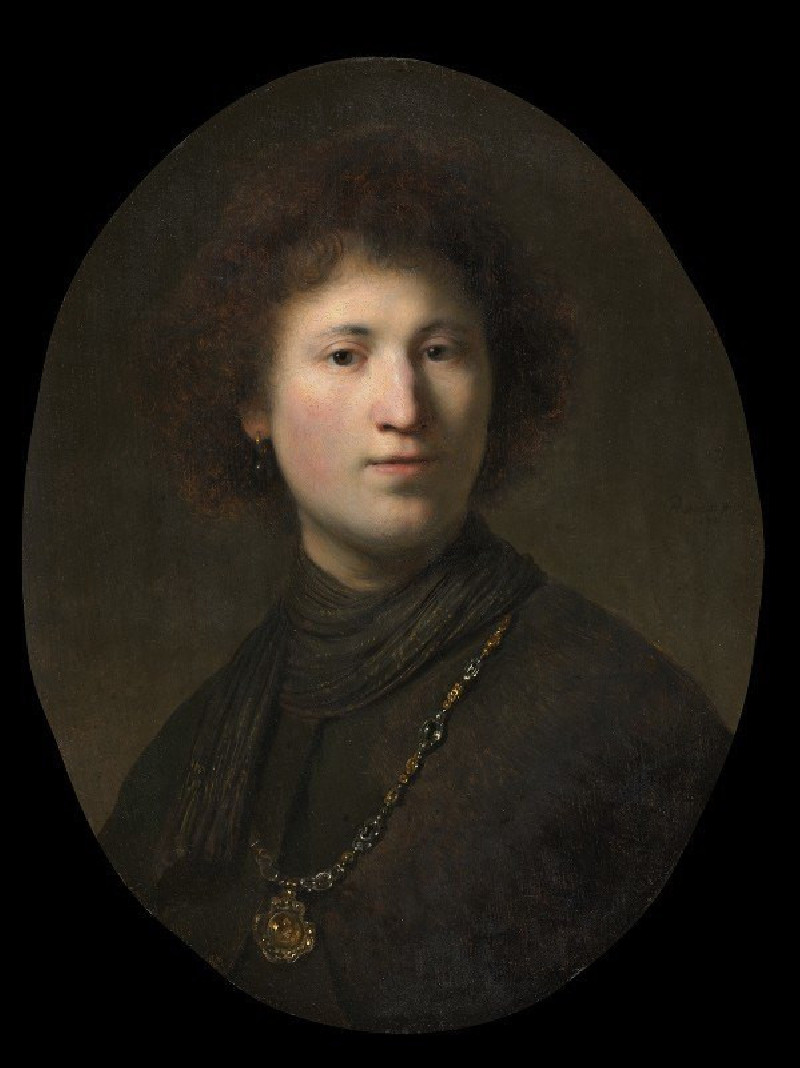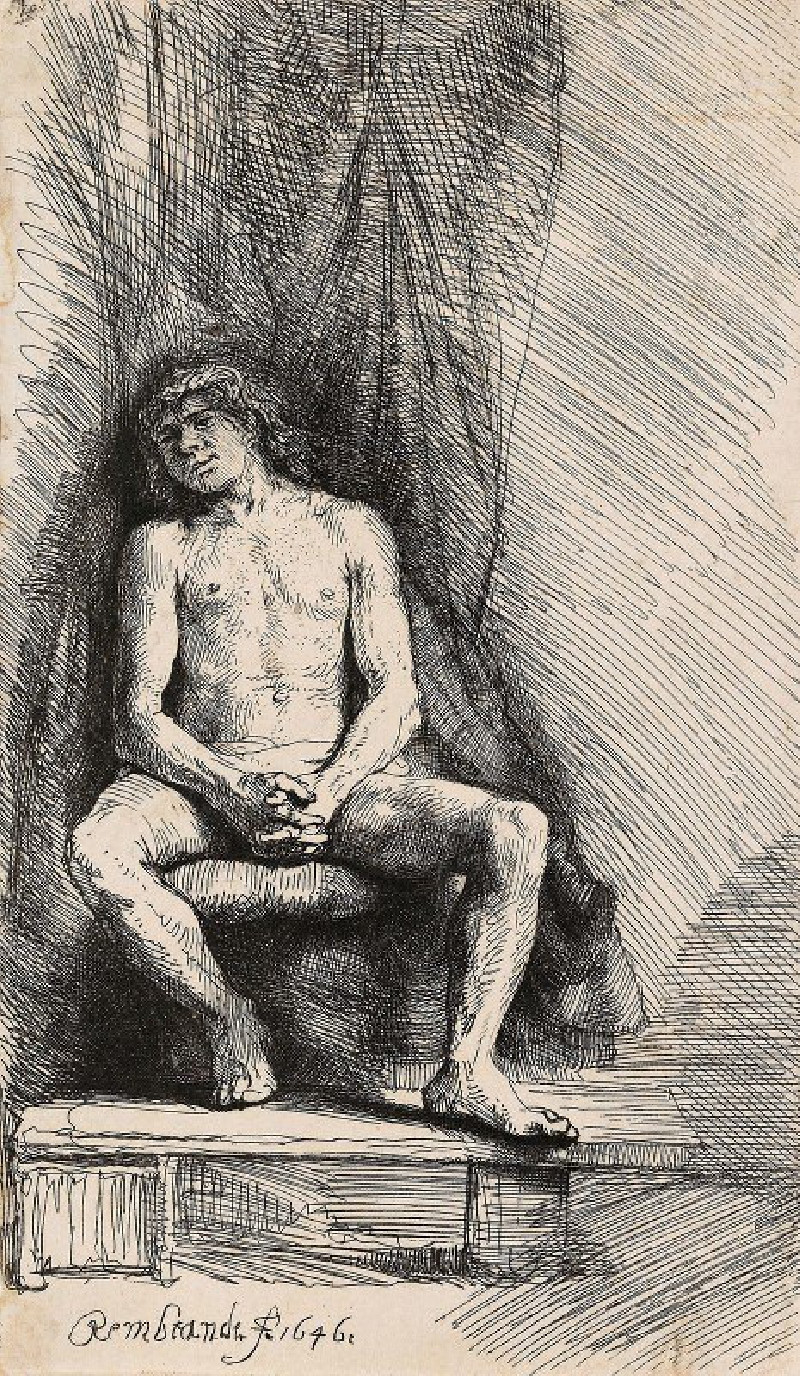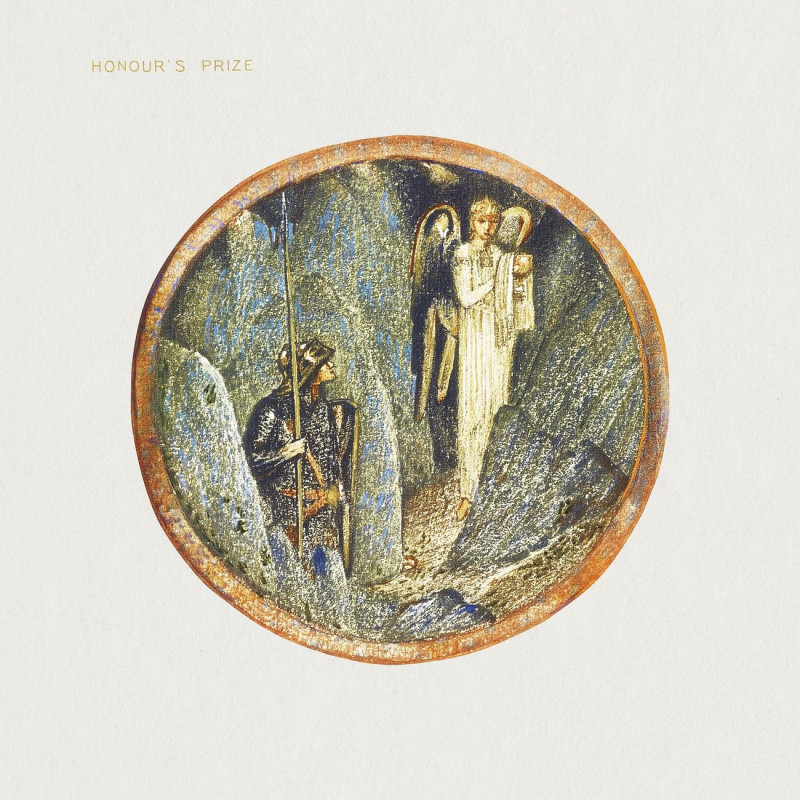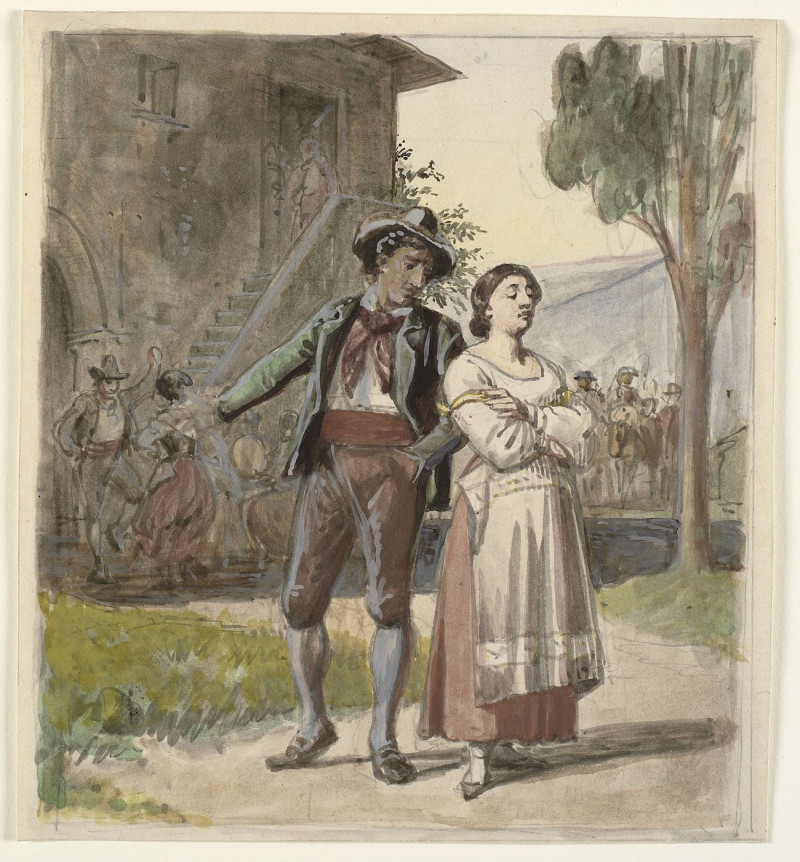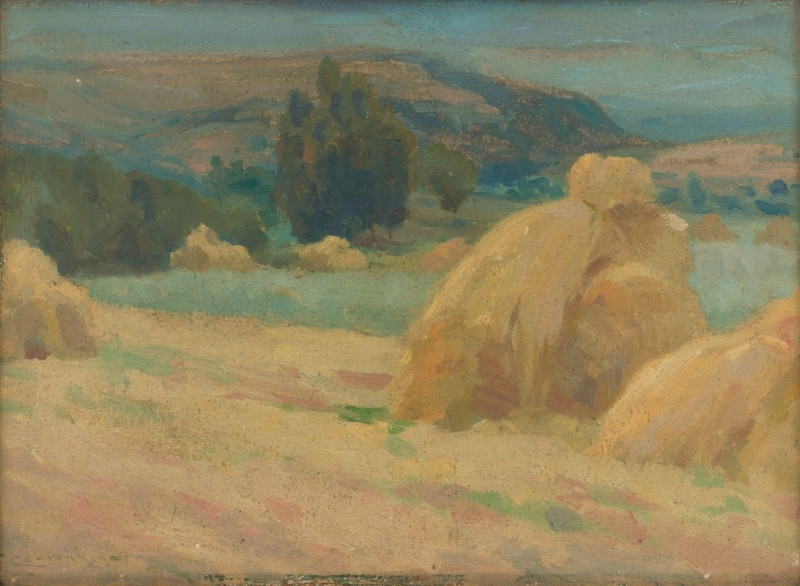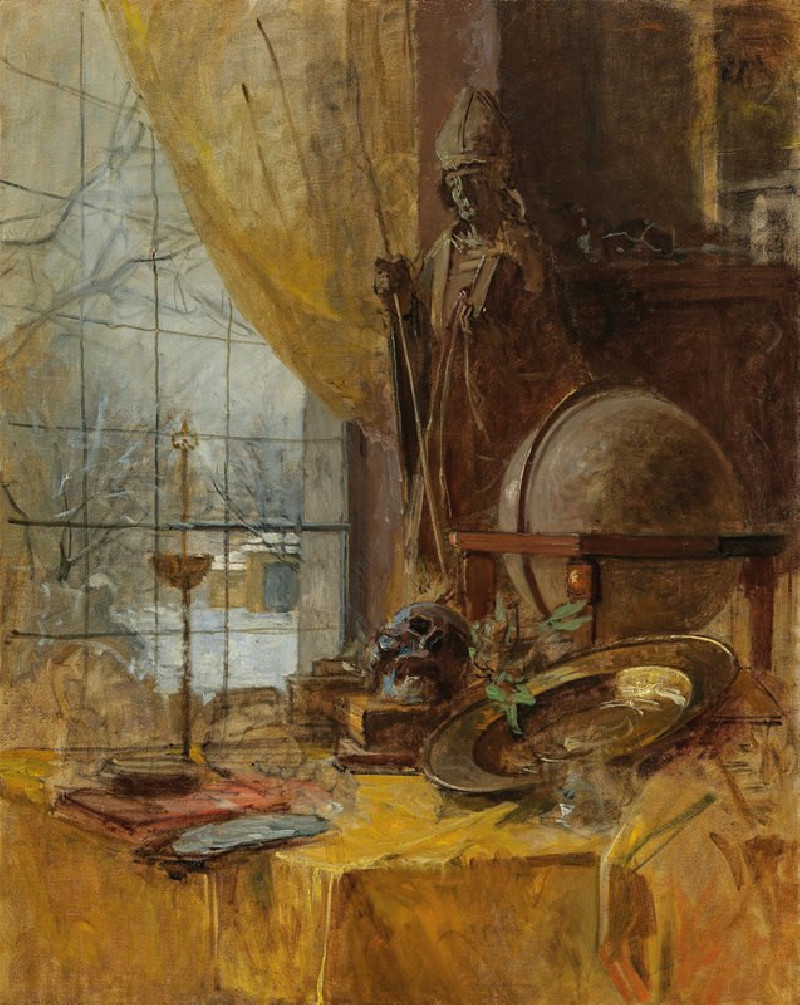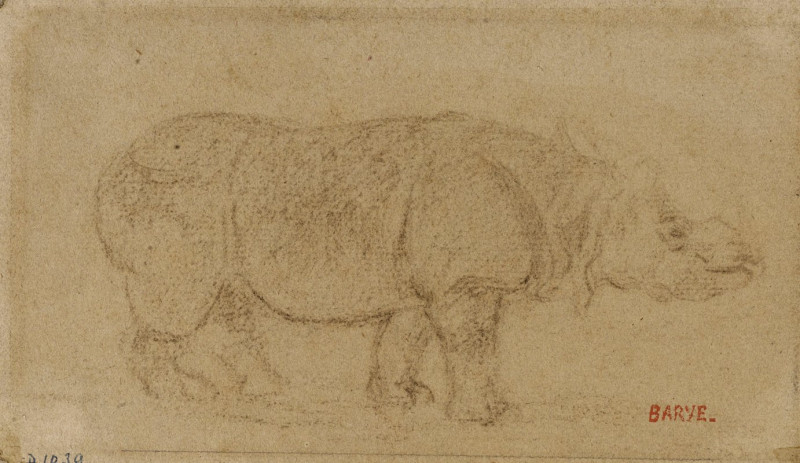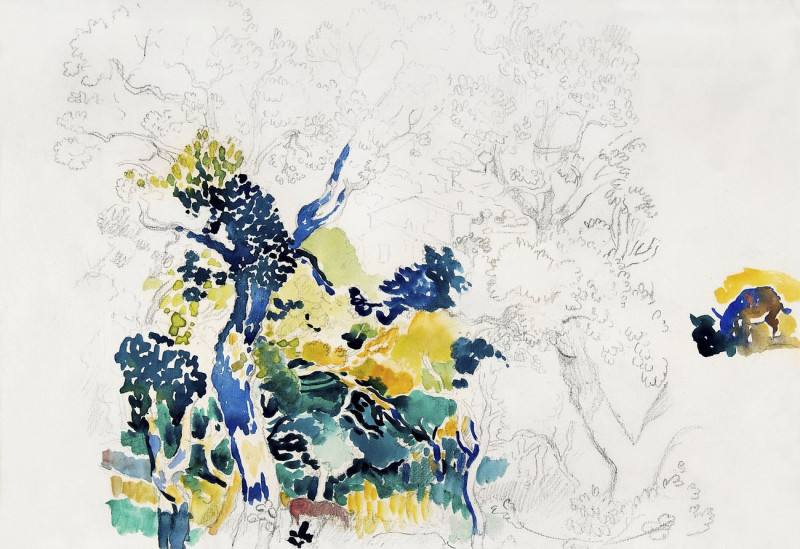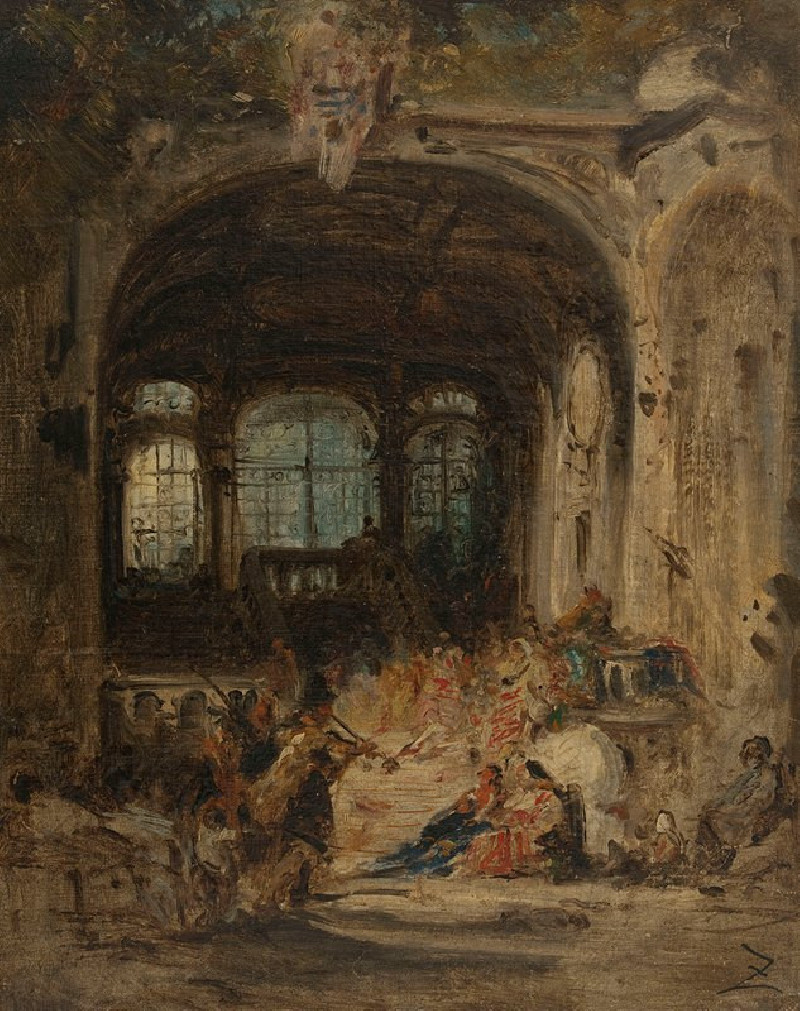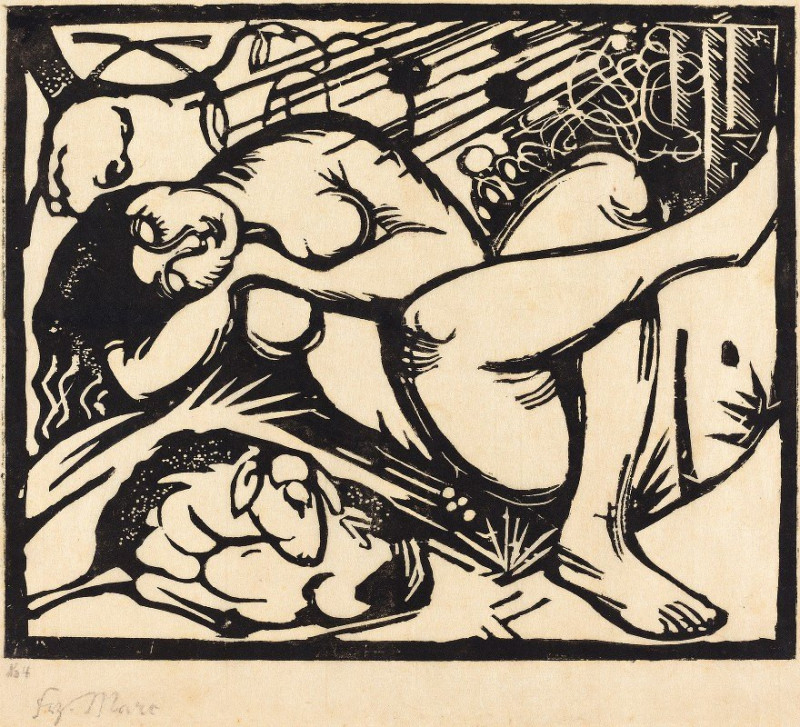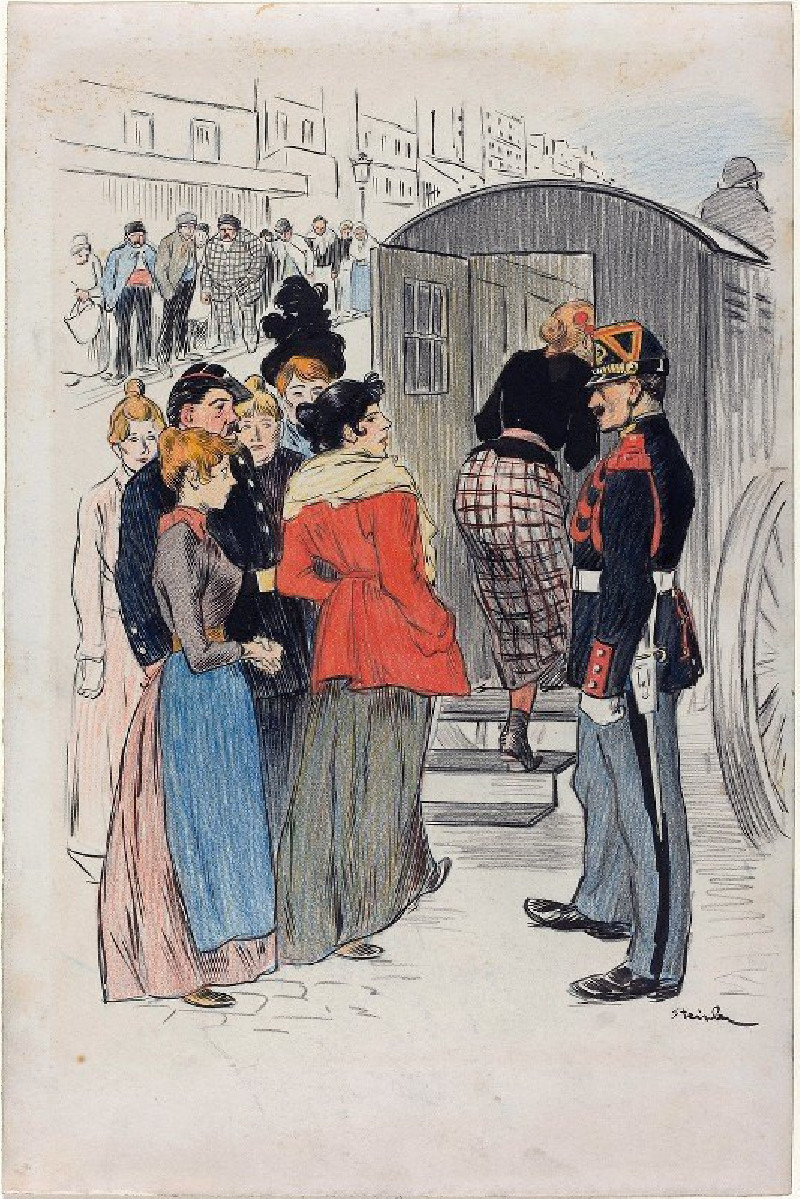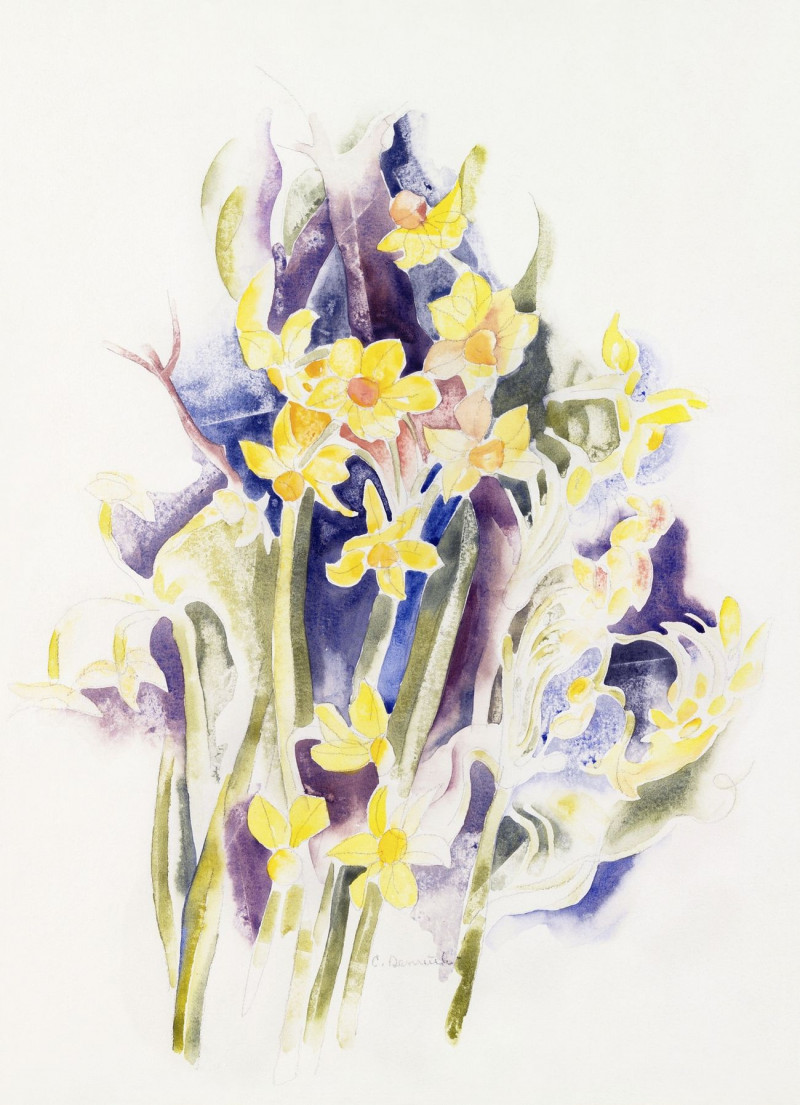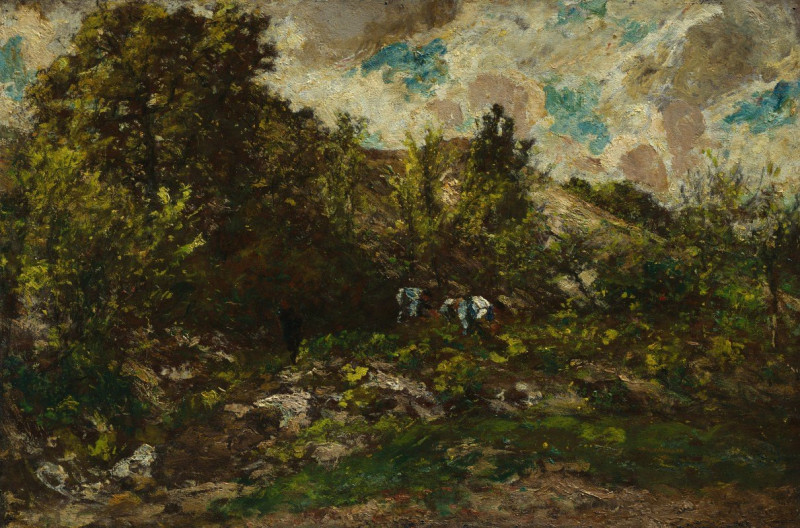Potiphar’s Wife Accusing Joseph Before her Husband (1620–69)
Technique: Giclée quality print
Recommended by our customers
More about this artwork
In this delicate sketch by Rembrandt van Rijn, one is invited to explore the dramatic and emotional intensity of the biblical story of Joseph from the Book of Genesis. Created sometime between 1620 and 1669, Rembrandt masterfully portrays the pivotal moment when Potiphar's wife falsely accuses Joseph of improper advances.The scene is set within a spacious, yet intimate chamber where each character's expression and posture are finely rendered to capture the tension of the moment. On the left, Potiphar, adorned in rich attire, sits on an ornate bed, his posture open yet bearing an expression of troubled contemplation, as if wrestling with disbelief and the weight of his wife's words. His attention is directed towards Joseph, who stands to the right, marked by his distinctive turban and cloak. Joseph's stance displays a mixture of defiance and resignation, indicative of his unjust plight.Potiphar's wife, the instigator of the drama, is depicted with animated gestures, her fingers pointed accusingly towards Joseph, her face marked by a blend of cunning and desperation. This interaction is sketched with fluid lines that suggest movement and emotional depth, characteristic of Rembrandt’s ability to convey narrative through subtle yet powerful details.Rembrandt’s choice to use soft sketch lines adds a sense of immediacy and fragility to the scene, inviting viewers to fill in the gaps and ponder the complexities of truth and deception. The setting is completed with elements like the detailed chair and the shadowy figures in the background, possibly servants or witnesses to the unfolding scene, enhancing the narrative’s context.
Delivery
Returns
Rembrandt Harmenszoon van Rijn was a Dutch draughtsman, painter, and printmaker. An innovative and prolific master in three media, he is generally considered one of the greatest visual artists in the history of art and the most important in Dutch art history. Unlike most Dutch masters of the 17th century, Rembrandt's works depict a wide range of style and subject matter, from portraits and self-portraits to landscapes, genre scenes, allegorical and historical scenes, and biblical and mythological themes as well as animal studies.

